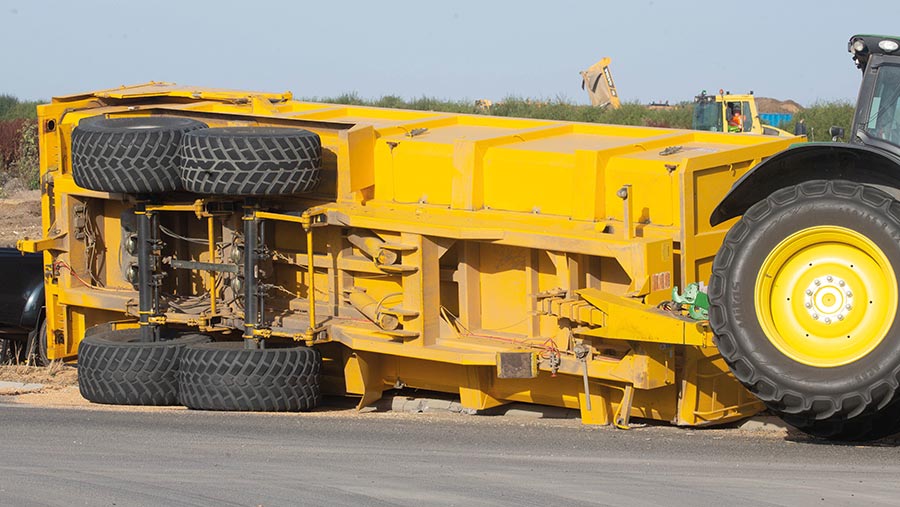Business Clinic: Why might there be a problem with our insurance claim?
 © Tim Scrivener
© Tim Scrivener Whether it’s a legal, tax, insurance, management or land issue, Farmers Weekly’s Business Clinic experts can help.
Rory Gibson, regional director, Scotland, at A-Plan Rural Insurance, offers some advice on a tractor accident claim.
See also: Business Clinic: what are the insurance needs if I diversify?
Q: One of our tractors was involved in a road accident while carting fertiliser to our grass paddocks.
We reviewed our insurance last year but are being told there might be a problem with the claim. In what areas can I expect to be covered?
A: Several types of cover that you might have could help in this scenario.
However, if there is a problem with your claim, it might suggest you haven’t updated your insurance cover to reflect the higher costs all farmers are seeing.
In particular, the volatility in fuel and fertiliser pricing means that a sum insured selected last year may now not be adequate. Different types of cover might apply here.
1. Goods in transit
Like the name suggests, goods in transit cover applies to goods such as fertiliser when they’re being transported, protecting you in the case of incidents such as a road accident.
It only covers the contents of your vehicle while they’re on the move, not before or after.
It is important that you review your insurance cover every year, but it is easy to overlook some of the lesser sections of the policy, where cover may not have required change in some time.
While fertiliser prices are down from highs of more than £1,000/t last year, they are still elevated, so speak to your broker to ensure you are covered.
2. Business interruption
Farmers are likely to be more familiar with business interruption (BI) cover, which provides compensation for loss of earnings and related expenses if something unexpected happens to buildings or machinery.
Crucially, not all BI policies will include a goods in transit extension, so you either need to add it specifically or buy a separate policy.
Also, beware that some things are covered under goods in transit and others not: transporting livestock, for example, is likely to come under the “livestock” part of your policy, whereas fertiliser will probably fall under “goods in transit”.
3. Produce and deadstock
On some policies, fertiliser will be insured against the likes of fire, malicious damage and theft within the property section This covers fertiliser when stored, but frequently not when it is in transit.
Our experience is that farmers often don’t have sufficient produce and deadstock cover to protect them in the event of a claim. So, consider whether you need to increase your sum insured under this heading.
Review your cover
Given the rising prices of recent years, all farmers need to ensure they have sufficient sums insured to cover for replacement input costs.
Similarly, those planning to purchase fertiliser now should check they have the correct level of cover.
This is true for all property and livestock. For example, after lambing and calving, you need to update your cover to account for any increase in livestock values.
Increasing sums insured to an adequate level is far better than the potential alternatives of being underinsured or not insured at all.
Do you have a question for the panel?
Outline your legal, tax, finance, insurance or farm management question in no more than 350 words and Farmers Weekly will put it to a member of the panel. Please give as much information as possible.
Email your question to FW-Businessclinic@markallengroup.com using the subject line “Business Clinic”.
